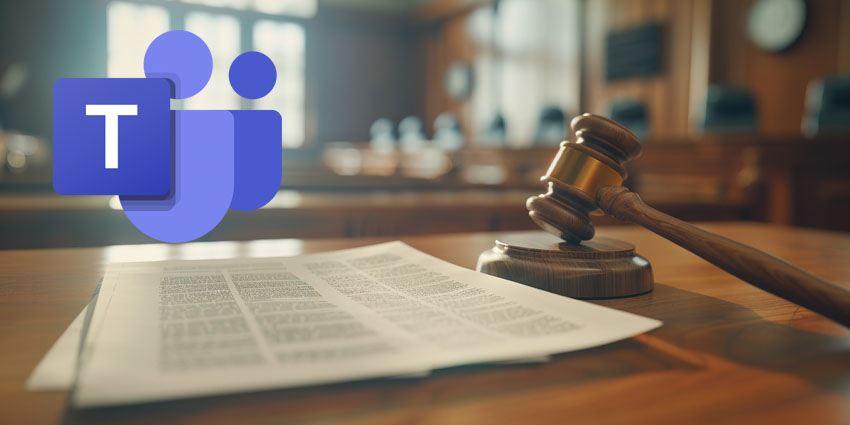Read this insightful guide on the silent data crisis.
In an era where instant messaging has become the world’s primary communication method, government officials find themselves increasingly caught out by its use.
The ability to communicate quickly, on the go, and with ease has made messaging services like Signal and WhatsApp indispensable for many.
Yet the problem for government administrators occurs when they use these unofficial channels for official communications.
“Government officials are like any other human being. They wake up, check their mobile, and look at their messages to see what’s in store for them for that day,” Avi Pardo, Co-founder and Chief Business Officer at LeapXpert explained.
However, government messaging is required by law in many jurisdictions worldwide to leave a record so that it can be scrutinized later.
Yet these popular messaging apps are far more ephemeral in nature than secure, government-designed communication platforms. In fact, both Signal and WhatsApp have a timer feature that removes messages after a certain time.
A simple answer to avoid this potential rule break would be to stop government workers from using these unofficial methods of communication.
That may, however, be an endeavor in trying to halt the tide.
Equally, its prohibition could genuinely stifle nimble communications between these different government workers who need to make fast decisions.
Luckily, LeapXpert has created a solution that can keep governments using these instant messaging apps while restoring the governance that its use loses.
Transparency, Accountability and Legal Exposure
Like emails or formal documents that are systematically archived, any government work and communication carried out on messaging platforms like WhatsApp, Signal, and iMessage need the same level of documentation.
“Messaging is just another way to communicate, and it falls into the same obligations that any government has,” Pardo explained.
Yet why this has so often caught governments out is because this form of communication is not connected to the overarching system government comms goes through.
Thus, should an audit be required of a certain government department, they would not be able to pull through the data as that communication channel is not linked.
“In some countries, governments are obliged to provide internal information on a serious incident in as little as 48 hours. They need to be able not just to record it, but also to show it.”
In Australia, however, a government audit revealed concerning patterns of messaging app usage across agencies, with unclear policies governing these communications.
Similarly, in the UK, government ministers called to give testimony regarding breaking the lockdown legislation during Covid were unable to provide evidence from their WhatsApp messages for precisely this reason, with even the soon-to-be Prime Minister Rishi Sunak saying this was due to having changed phones multiple times since then.
Bridging the Governance Gap with Communication Technology
As governments worldwide begin to recognize the magnitude of this issue, technical solutions are emerging to bridge the governance gap without forcing officials to abandon the communication tools they prefer.
“Governments across the world are starting to look at solutions to roll out,” noted Pardo.
The challenge lies in finding ways to integrate these modern messaging platforms with official record-keeping systems.
LeapXpert does this by positioning its solution as an intermediary between official requirements and modern communication preferences.
“What we actually built was a platform that basically sits in between the clients and the organization, and by doing that, we are able to govern all these messaging interactions,” Pardo says.
Such solutions enable different mechanisms that will translate into data ownership.
Equally, LeapXpert’s solution also calms the other concern that comes with government communications on instant messaging apps: security.
“WhatsApp, Signal, and others are pretty secure,” Pardo reassured. “But it is once you collect the data, you need to be able to protect. Our system uses their own security mechanism, their own encryption mechanism.”
This is because LeapXpert’s solution acts as a critical infrastructure layer that can govern communications regardless of platform and bring them into the overarching communications infrastructure.
Importantly, the solution is designed to operate within secure, localized environments, sitting inside the government perimeter and deployable on secure and approved infrastructure. This ensures compliance with stringent security protocols and regulatory requirements while maintaining full control over sensitive data.
A Call for Proactive Governance
The instant messaging revolution isn’t reversing course; if anything, the trend toward quick, convenient digital communications is accelerating.
Thus for government entities, the question isn’t whether to address messaging governance, but how quickly they can implement appropriate solutions.
The cost of not doing so is not measured in dollars or revenue, but an erosion of public trust that may be felt when it comes to the polls.
By placing LeapXpert’s communication layer to connect instant messaging solutions to their critical enterprise tech stack, government’s can keep the benefits of it by adding that level of governance needed to make them compliant and secure.
Those that delay may find themselves facing greater challenges as messaging becomes ever more central to daily operations.
For more information, visit LeapXpert.







